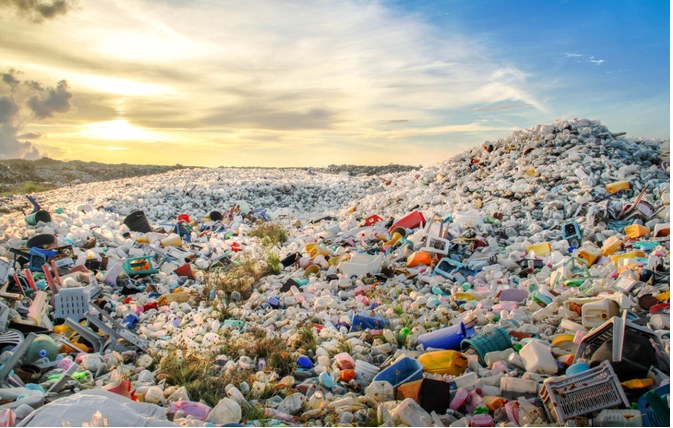
Saudi Investment Recycling Company (SIRC) and MVW Lechtenberg Projektentwicklungs- und Beteiligungsgesellschaft GmbH in collaboration with Empower a Norwegian blockchain solutions provider for recycling plastic, has announced the launch of a transformative plastic waste management project in Saudi Arabia.
The goal of the project is to process approximately 3 million tons of municipal solid waste per year to produce refuse-derived fuels (RDF) in six governorates. The estimated CO2 emissions reduction when the project is fully implemented would be approximately 1,791,300 tons per year.
Saudi Investment Recycling Company (SIRC), the executive arm for waste management in Saudi Arabia, a key player in the initiative, is a wholly-owned subsidiary of the Public Investment Fund (PIF) in the kingdom. The new plastic waste management project is expected to reduce carbon emissions by approximately 1,791,300 tonnes per year. This will contribute to achieving the Kingdom’s environmental sustainability goals toward a greener future, aiming to mitigate pollution and protect natural resources.
It also aligns with the nation’s endeavors to achieve sustainable development goals through well-designed plans and processes in all its sectors, including the National Environment Strategy.
Empower’s blockchain technology will play a crucial role in this project, ensuring transparent tracking and management of plastic waste from collection to recycling and RDF conversion. This system will allow real-time monitoring of waste management activities, providing valuable data for stakeholders including municipalities, governments, and environmental organizations.
A key innovation in this project is the integration of Plastic Credits and RDF systems. Plastic Credits incentivise responsible waste disposal by providing financial rewards for verified plastic waste collection and recycling activities. These credits can be traded or sold to entities aiming to neutralise their plastic footprints or comply with environmental regulations, thereby fostering a more circular economy.
Plastic Credits will help close the financial gap between the cost of collecting and processing plastic waste and the market price for recyclable materials and RDF. By providing a sustainable revenue stream, these credits will ensure the long-term financial viability of this waste management initiative, making it more attractive to investors and stakeholders.
The verification of these credits will be based on the GPx traceability standard developed by GPN Corporation, as a member of the International Green Purchasing Network (IGPN). This standard ensures high levels of transparency, traceability, and accountability, which are crucial for building trust and securing participation from various stakeholders.
In January, Saudi Arabia’s Ministry of Environment, Water and Agriculture unveiled a plan to recycle up to 95 percent of the country’s waste, a move it claims will contribute SR120 billion ($31.99 billion) to the gross domestic product, according to the Saudi Press Agency.











